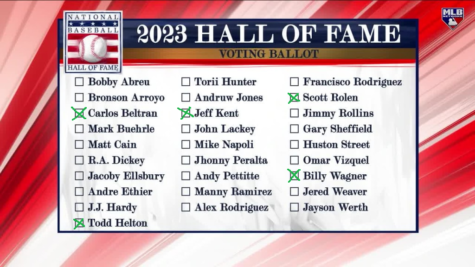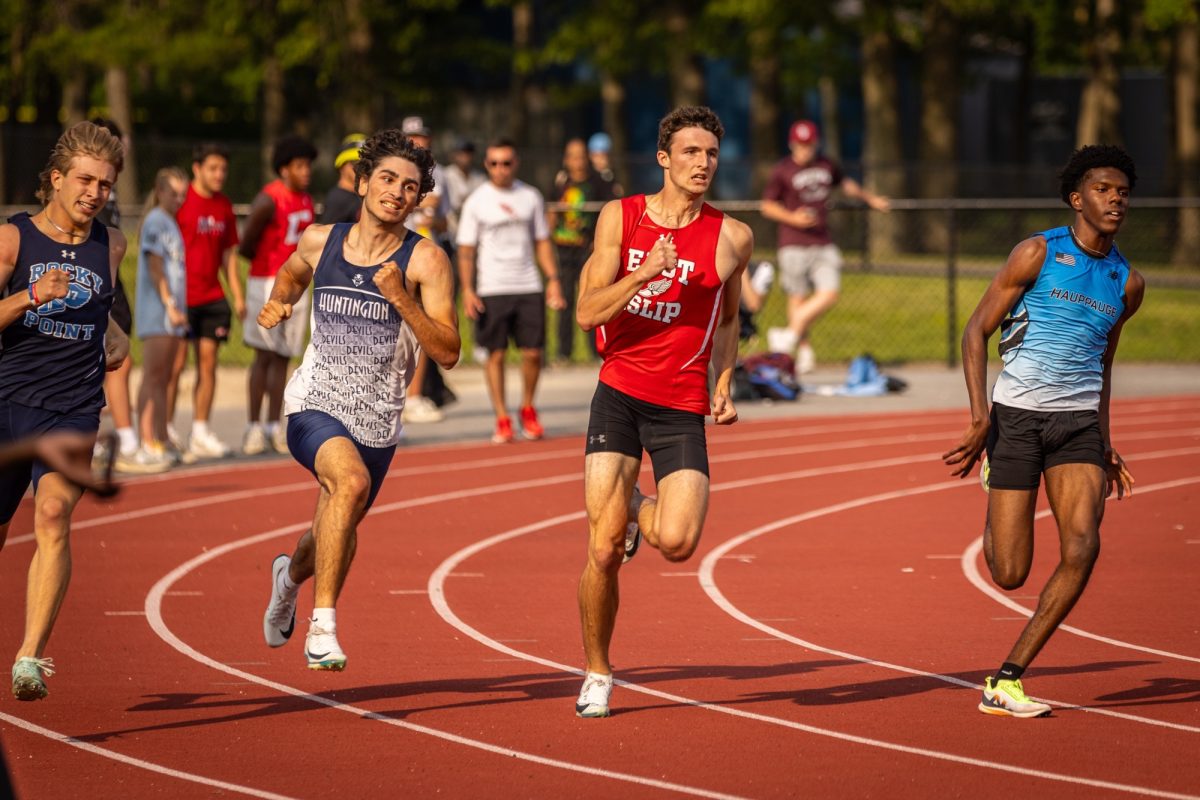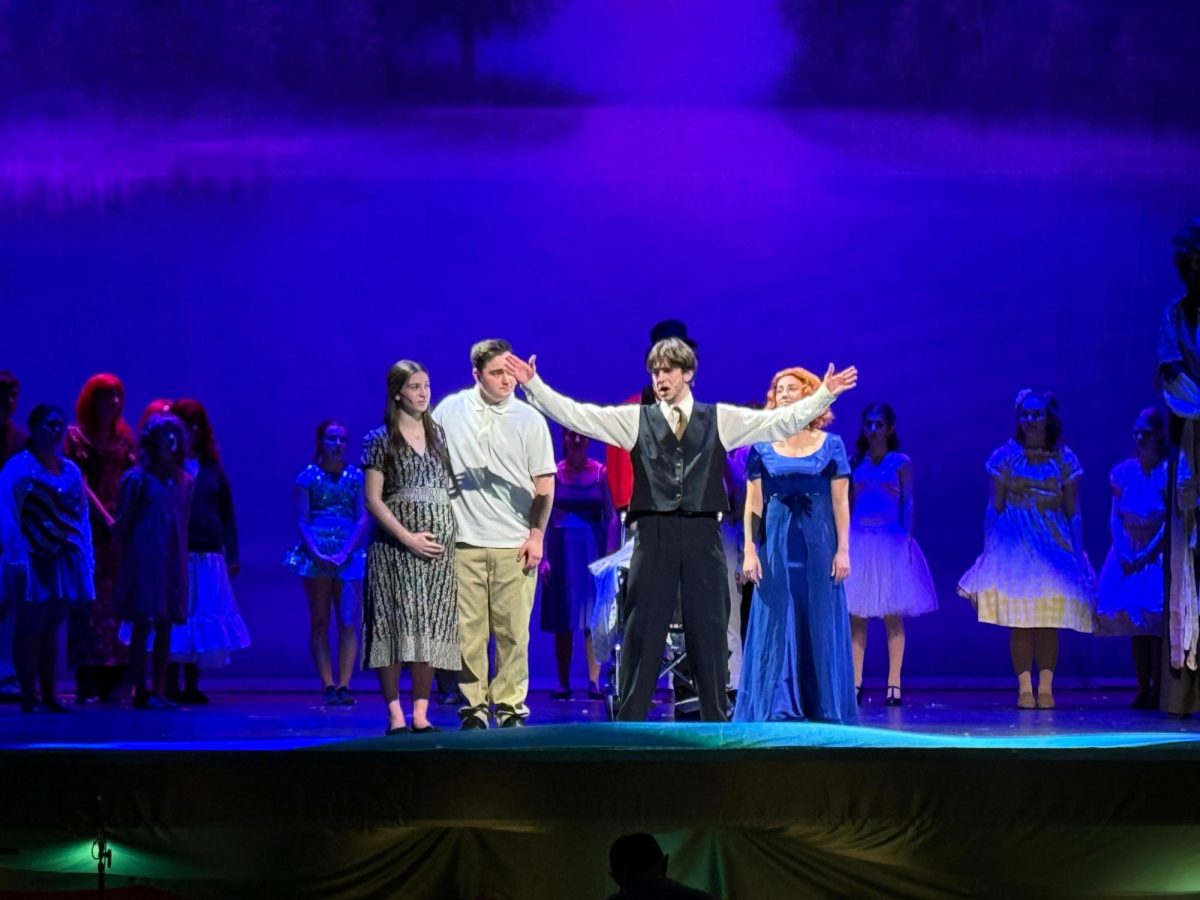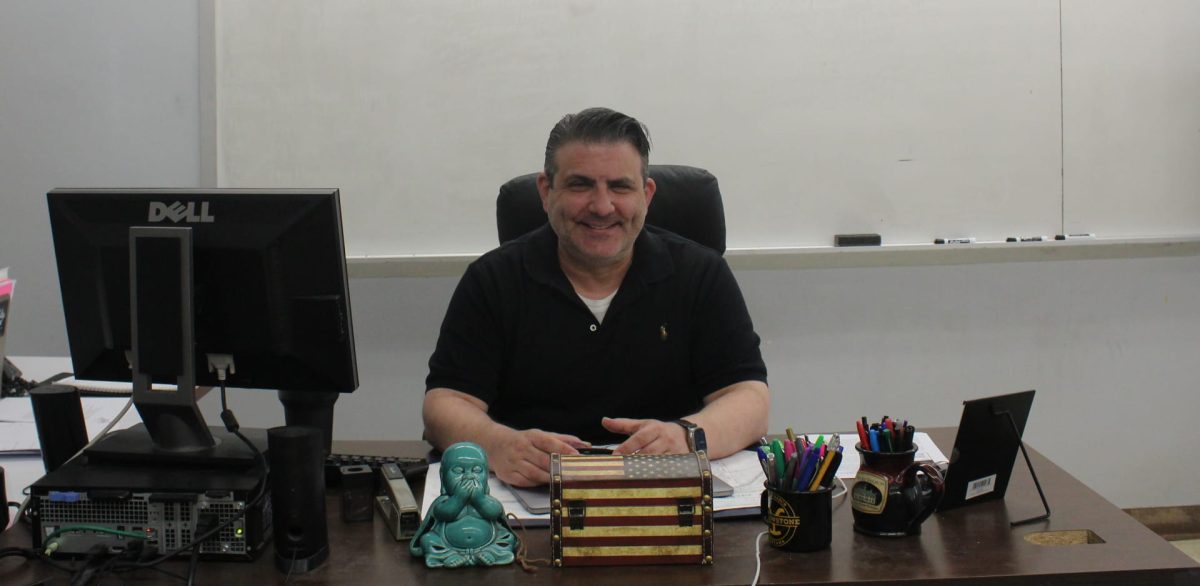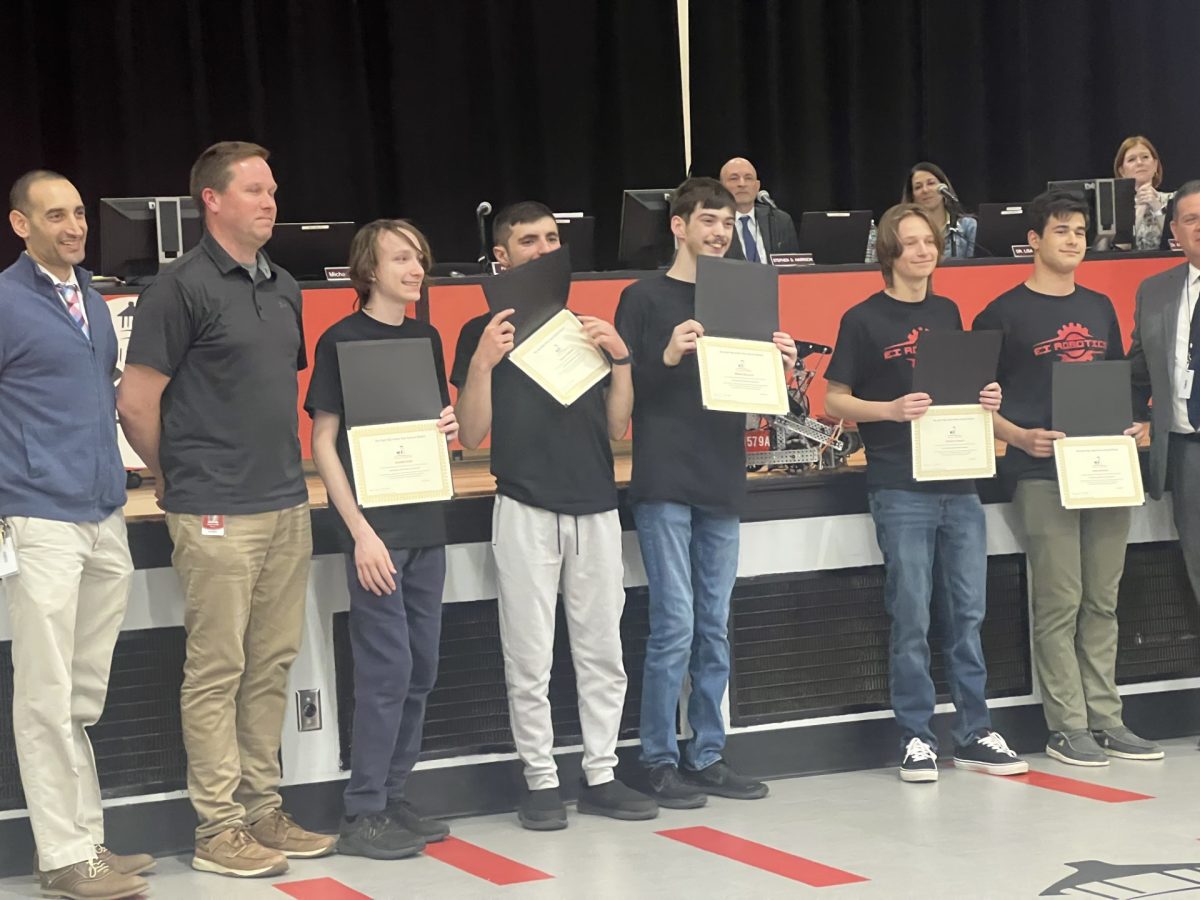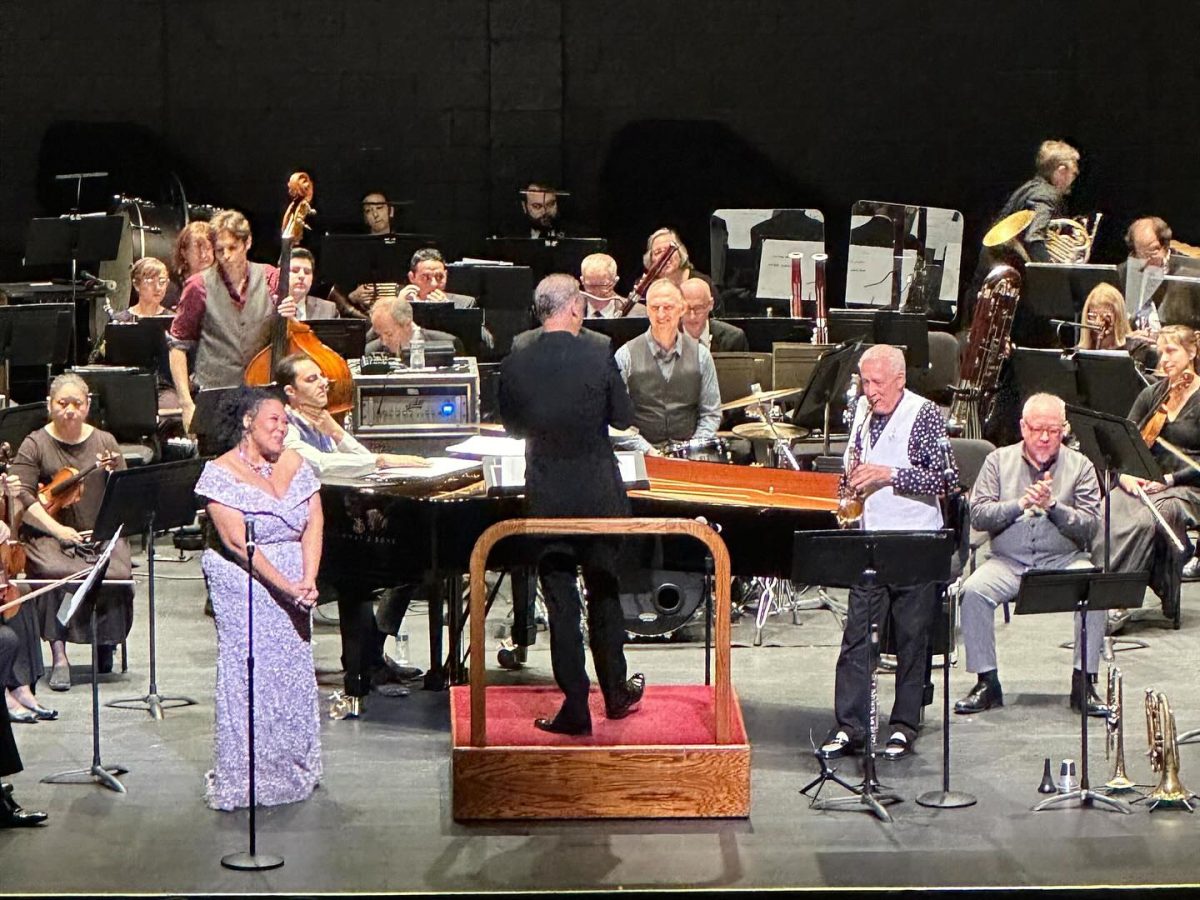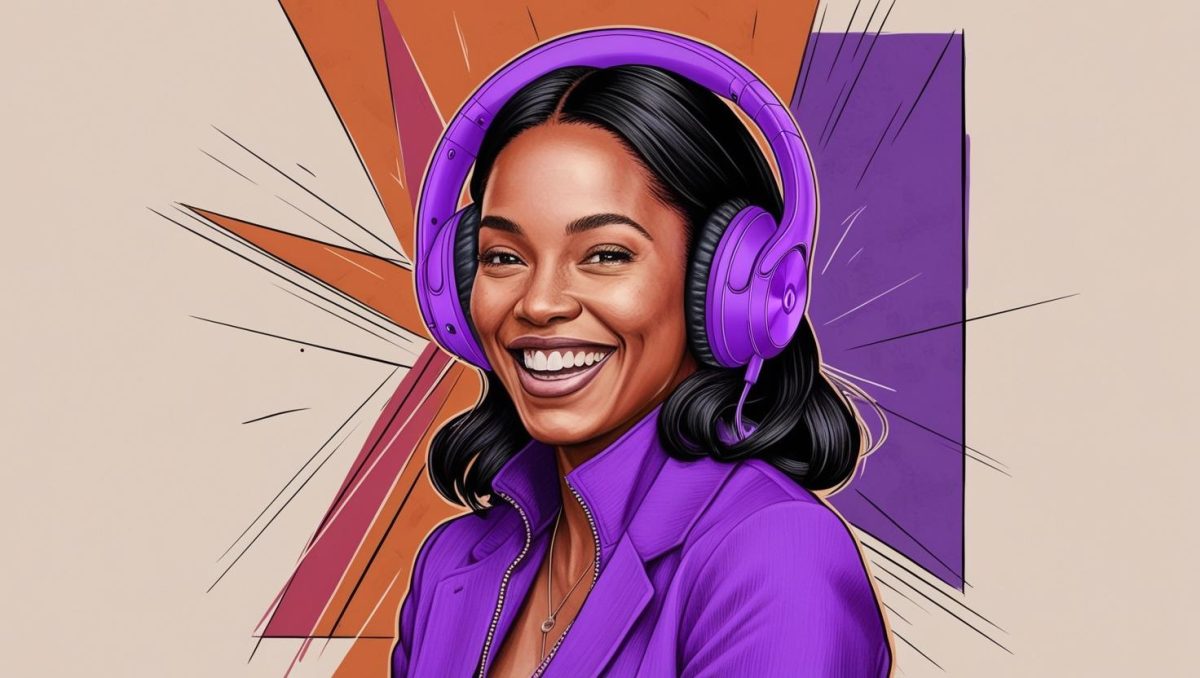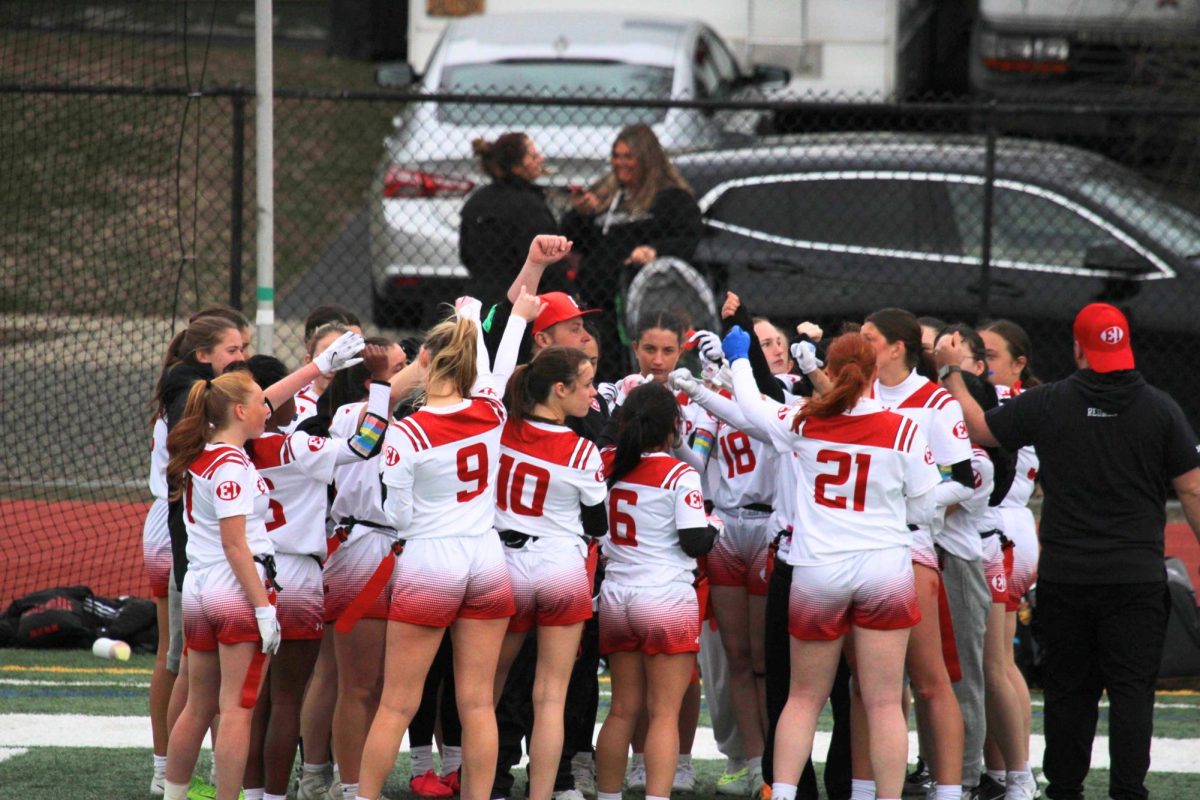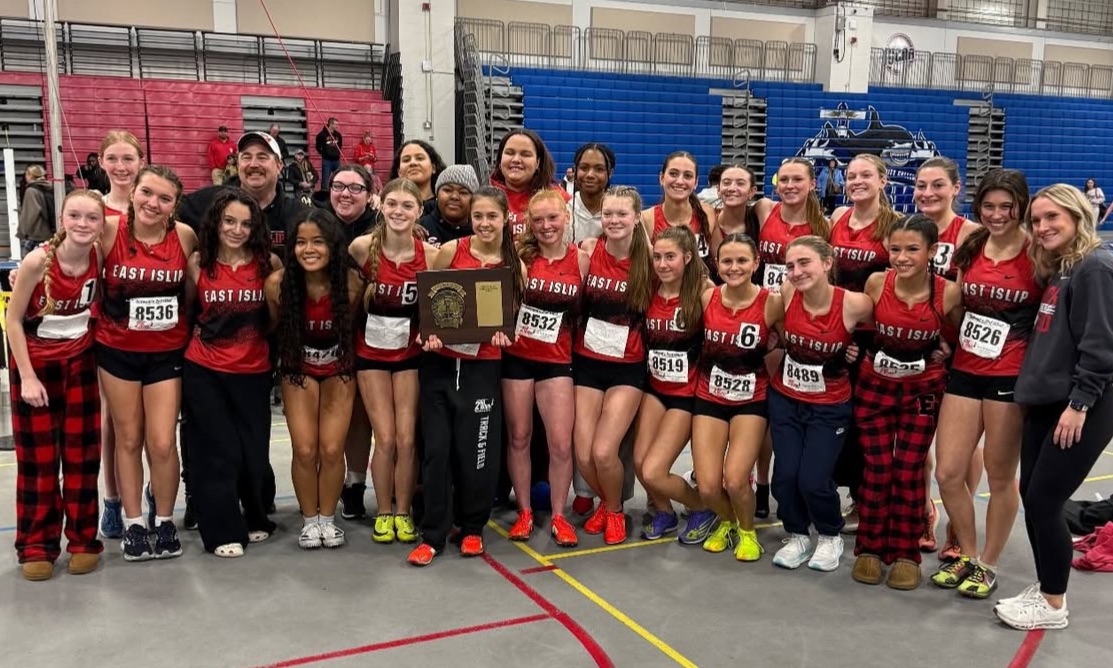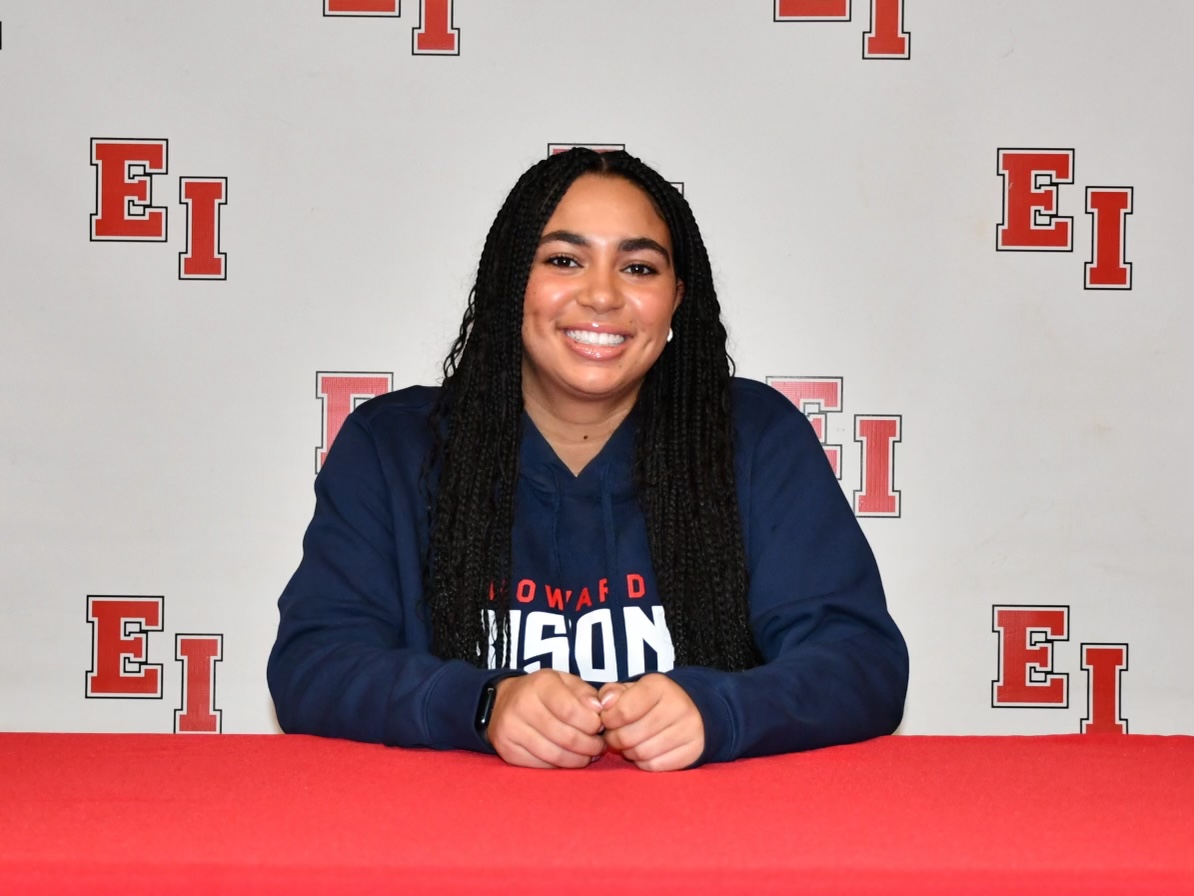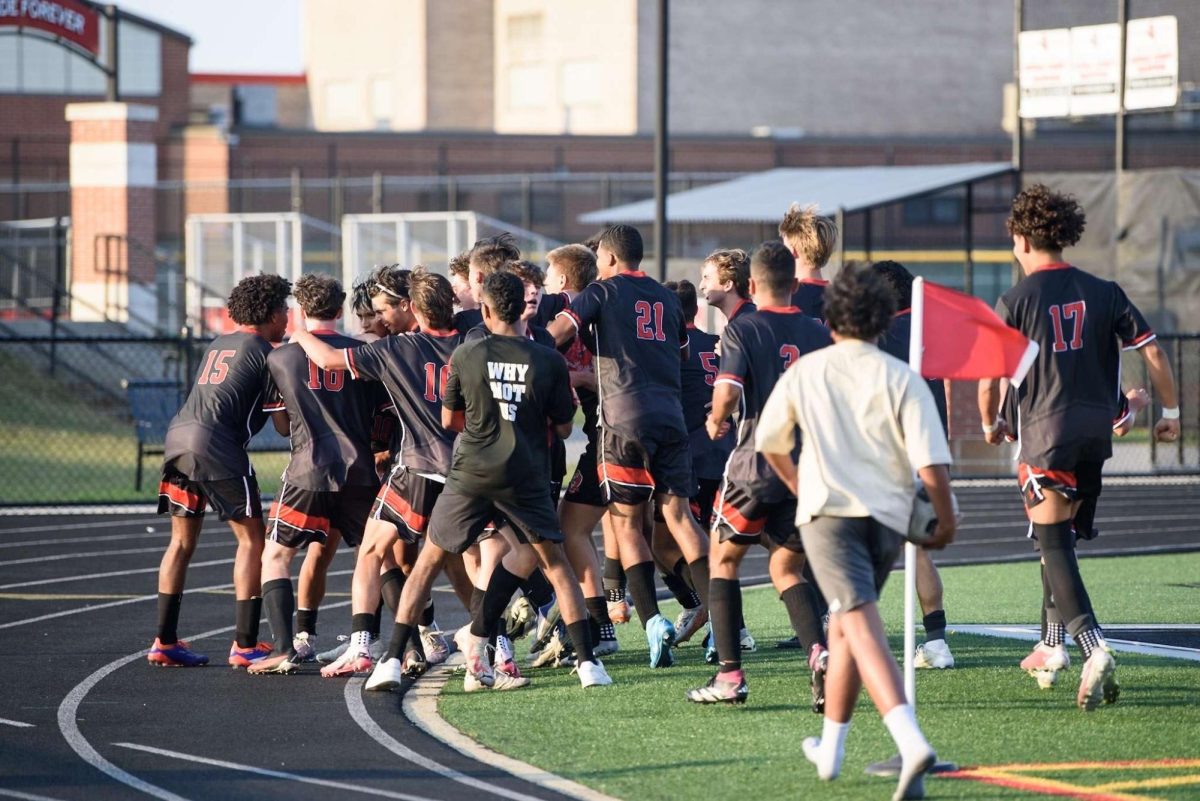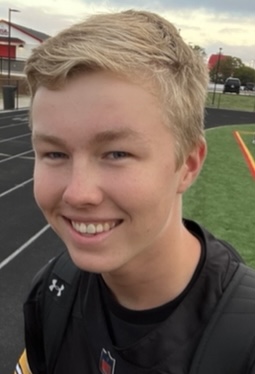In just a few short weeks, the National Baseball Hall of Fame will announce which players have been inducted into its 2023 class. I want to discuss all of the players on the ballot, and how I would fill out the ballot if I were handed one.
First and foremost, here are all of the players that are on the ballot this season:
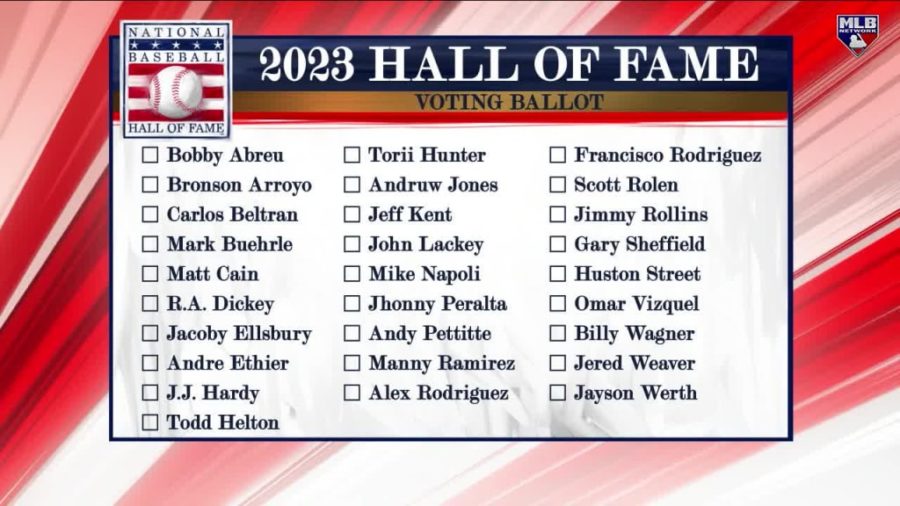
Right off the bat, I’m going to eliminate four names. Alex Rodriguez, Manny Ramirez, Gary Sheffield, Omar Vizquel. Those first three players all have heavy ties to the use of performance enhancing drugs, a sentiment that, in my opinion, should disqualify even the most legendary of players from any consideration. Vizquel, the final player, has a fringe case to begin with, but recent allegations against him have taken away any chance he had on this ballot.
Moving on, an important stipulation for nearly all batters voted into Cooperstown by the writers of the Baseball Writers’ Association of American (BBWAA), is that they have over 2000 career hits. There are certain players to be inducted that are under that threshold, but those are special cases that often relate back to losing time in MLB as a result of being forced into the Negro Leagues, missing time to serve in the military, or devastating career ending injuries that came too soon. Even still, most of the players under 2k hits were voted in by the Veterans Committee. The Veterans Committee consists primarily of former players, as opposed to the writers of the BBWAA, and it always happens after the players’ go around with the BBWAA, so sympathy has often been garnered for these players that have not been granted their full career.
All that being said, I want to eliminate six names that have not compiled 2,000 career hits. Jacoby Ellsbury, Jhonny Peralta, Jayson Werth, JJ Hardy, Mike Napoli, and Andre Ethier are all well below the 2,000 hit marker with the only career being cut short due to injury being Jacoby Ellsbury who was whelming at best for the majority of his 11 year career with the Red Sox and Yankees. I would like to point out that I have not yet eliminated Andruw Jones, who finished his career with 1,933 hits. I’ll discuss his case in more depth later.
In a similar vein, I’m going to drop six pitchers that I do not believe necessarily have the volume nor the accolades to qualify. Matt Cain, Bronson Arroyo, Huston Street, and Jered Weaver all had snippets of elite play, but nothing sustained nor did any of their careers meet the standards of the Hall. In two very similar cases, John Lackey and RA Dickey both had a season or two of being top pitchers and played for a long time, but were very much so middle of the road players for the majority of their careers.
With those 16 names now no longer in consideration, this is what the list looks like:
- Carlos Beltran
- Mark Buehrle
- Todd Helton
- Torii Hunter
- Andruw Jones
- Jeff Kent
- Andy Pettitte
- Francisco Rodriguez
- Scott Rolen
- Jimmy Rollins
- Billy Wagner
The maximum amount allowed on a single ballot is 10 selections, but I’m in the school of thought that each case should be individually assessed, with only those worthy receiving a vote.
Of this group, there’s three that I believe are sure fire Hall of Famers.
Scott Rolen has probably the most worthy case on this whole ballot. Entering his 6th year on the ballot, many think this is the year he finally takes his rightful place in the Hall of Fame. 70 career WAR, 300 home runs, and a .281 career batting average to pair with just barely eclipsing the 2,000 hits threshold is a great foundation for his case. Rolen was a seven time all star, Rookie of the Year with the Phillies 1997, and a World Series Champion with the Cardinals in 2006. The most outstanding element to Rolen’s game wasn’t with the bat but rather with the glove, earning 8 gold gloves in his career and compiling 116 defensive runs saved throughout his career, despite the stat only beginning 7 years into his career in 2003. All of that combined with a historical underrepresentation of third basemen in the Hall of Fame, makes me and many others believe Scott Rolen deserves Cooperstown.
One of the opinions that I’ve held for years is that there are very few more deserving of a Hall of Fame vote than Todd Helton. Helton will be entering his 5th season on the ballot, finally getting 50% of the vote last season. Helton has 369 career home runs, 2500 hits, 1400 RBIs, and a .316 batting average. Helton is also heralded as the greatest Colorado Rockie of all time, spending all 17 seasons of his career with them and leading them through their infamous ‘Rocktober’ playoff run. In nearly every offensive category, Helton is the franchise leader. He also has a great peak, with a five season span from 2000-05, all with MVP votes, all star selections, and four with gold gloves. His slash line was .349/.450/.643 through this time frame, he averaged 37 home runs, and he was a workhorse, never playing less than 150 games in the span. Sidenote: while in college at the University of Tennessee, Helton played baseball as well as football. He was the Volunteer’s backup quarterback. The starter that season? Peyton Manning. While it doesn’t really hold any weight in evaluating him as an MLB player, it is fun to mention.
For my final player I didn’t spend too long considering, let’s start at the table below.
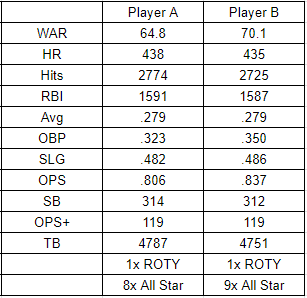
Player A would be Hall of Famer Andre Dawson, Player B is Carlos Beltran. Since all of his main stats are listed above, I won’t go through them again. The biggest and pretty much only reason to keep Beltran out of the hall is his involvement with the 2017 Houston Astros Cheating Scandal. Many claims say that Beltran was instrumental in orchestrating the scheme and that he was one of the ring leaders of the whole thing. However, as much as I despise that entire operation and the hardware they earned from it, I still believe he deserves a vote. 2017 was the last season of Beltran’s career, and the stats he put up were incredibly poor. Let me put it this way, if Beltran never played in 2017 he would still be a Hall of Famer, so if we want to count the scandal against him then the rest of his career still stands the test.
This leaves the candidacy of seven players under further interpretation. Four hitters, two starters, and two relievers. I’m going to start by talking about the two relievers. Billy Wagner and Francisco Rodriguez both have around 430 career saves, 1100 strikeouts, 25 career WAR, and 6-7 all star selections. Their numbers appear to be similar in many ways, but I believe only one is worthy of a vote. For a few reasons, Billy Wagner has a much more intriguing case to me. First and foremost, he is quite possibly the greatest left-handed closer in the history of baseball. That being said, a grand total of zero lefty closers have been inducted. For such an underrepresented position, Wagner more than fits the bill for a Hall of Famer. However, the main reason Wagner gets my vote over Rodriguez is the discrepancy of their peripherals.
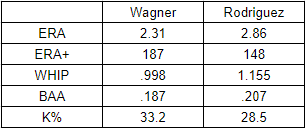
Wagner’s uniqueness as a lefty combined with his utter dominance while on the mound compared to ‘only’ Rodriguez’s greatness justifies to me that he is the only reliever worthy of a vote.
In the spirit of pitchers, two soft tossing southpaws will return to the ballot this year. Yankees postseason legend Andy Pettitte won 250 games in his career and put up just over 60 WAR. Joined by perfect game thrower, Mark Buehrle, these two cases are also quite similar. While many Hall of Fame pitchers are overpowering flamethrowers such as the likes of Nolan Ryan and Randy Johnson, these two much more embody the spirit of consistency. Both did not have the lowest ERAs, both sittings between 3.80 and 3.90, they both threw for a ton of innings. In 18 seasons Pettitte gave his team 3,316 innings while Buehrle threw 3,283 in 16 seasons. However, as much of a great player I think both of these two men were, I cannot bring myself to add either of them to my ballot. I think Pettitte has a better case than Buehrle because of much more All Star appearances, Cy Young votes, and strikeouts, he has also admitted to steroid use. Even with my Yankee-bias factored in, Pettitte doesn’t get a vote. In my opinion, if Buehrle had given his consistent 221 inning pace for another 2-3 seasons I think he might’ve had a much more compelling case. Alas, he retired at age 36 after the 2015 season.
Next up, the case of Bobby Abreu. Abreu’s numbers on initial glance seem promising. He put up 60 career WAR, 2400 hits, and an OPS+ above 100 for 14 seasons. As good of a hitter as Abreu was, he was always mediocre in the field. For a right fielder that left much to be desired defensively, Abreu never truly separated himself from the pack during his career, with only 2 all star game selections and never placing higher than 12th in MVP voting. He does not get my vote.
Fellow Phillie, Jimmy Rollins actually won the MVP award in 2007. Unfortunately for Rollins, that was the only truly stellar season of his career. He is under 50 career WAR, as well as having an OPS+ under 100 for his career. Being a below average hitter throughout the course of a career means that he would have to be absolutely stellar defensively to warrant making the Hall. The only hitter in Cooperstown that Rollins can base his case off of his Ozzie Smith. However, the Wizard of Oz has over 10 more all star selections, 9 more gold glove awards, and 30 additional defensive WAR over Rollins. All of Smith’s defensive successes are enough to overcome his OPS+ being below 100, but the same cannot be said for Rollins.
In years past, the candidacy of Barry Bonds would be discussed in length in this type of article. Luckily for me, I don’t have to give a verdict on Bonds. I do, however, I have to give a verdict on his teammate, Jeff Kent. Kent’s case for me is a pretty simple one. Among all second basemen in the history of the game, Kent has the most home runs with 377. Add in an MVP award, 4 silver sluggers, and a slash line of .290/356/.500, and this is a pretty open and shut case for me. The main reason many of the voters will not vote for Jeff Kent is that he was a super prickly person during his career, to both his teammates and the media. However, I don’t really enact the character clause unless the offenses are much more egregious. Jeff Kent gets my vote.
Now, we are down to the final two cases to be examined. Both players have remarkably similar careers. Defensive center fielders that had very stellar hitting stats, it is time to discuss Andruw Jones and Torii Hunter. Hunter’s case is not complex. For as great a player as he was, and as much as it pains me to say, he was not a Hall of Famer. His stats would make him a first ballot for the fictitious “Hall of Very Good” but he never truly got over the hump to make the Hall of Fame. Only 50 career WAR hurts him, as well as only 5 all star selections. On the other hand, I think Jones has one of the most compelling cases on the ballot. As I mentioned, he did not meet that illustrious 2000 hit marker. However, he is one, if not the greatest defensive center fielders of all time. And he was no one trick pony, as he also launched 430 home runs in his career. The reason I had left him off my ballot is that after he turned 30, he signed a huge deal with the Dodgers, and gave up, it seems. He only played in five more seasons for four teams, hit another 66 home runs, batted .210, and 250 hits. A miserable finishing act to his career means that he finished with 1,933 hits, a tick below the benchmark. One might argue that 400 home runs is more than enough to vote for the greatest defensive center fielder of all time. However, I stand firm in believing that the 2,000 hit plateau is a vital one. It is there to signify that player’s have met the absolute minimum successful career to be considered. There are certain cases where players don’t need to have 2,000 hits, as we’ve discussed with career ending injuries. Alas, Jones’ career did not come to an end due to some horrific tragedy out of his control. He simply gave up on baseball just a touch too soon.
With all of that being said, this is what my final 2023 MLB Hall of Fame Ballot will look like:
